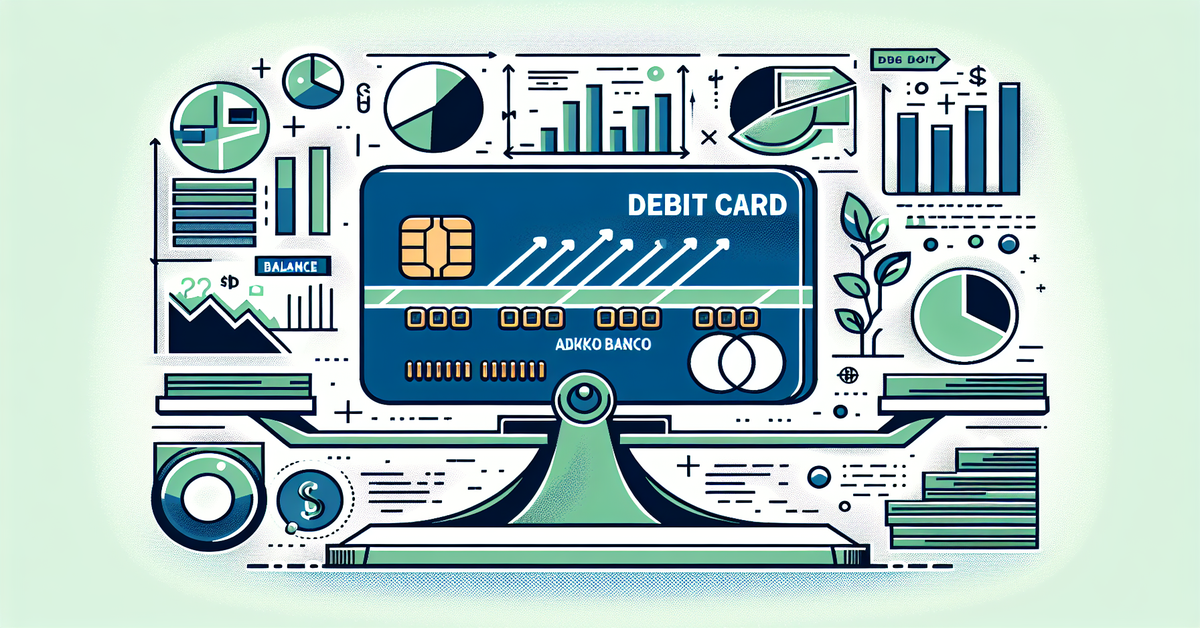Have you ever wondered if using a debit card is truly safer than cash? It seems straightforward, but the mechanics behind how a debit card connects to your bank account and facilitates transactions can be quite intricate. As you swipe your card, multiple processes kick in to guarantee your funds are secure and available. Yet, there are nuances about fees, security features, and responsible usage that many overlook. Understanding these elements could change how you approach your everyday spending. What exactly happens behind the scenes when you make a purchase?
What Is a Debit Card?
A debit card is a financial tool that lets you access your bank account funds directly to make purchases or withdraw cash. It's convenient and offers a straightforward way to manage your money without the risks associated with credit cards. When you use a debit card, the money's deducted from your account immediately, helping you avoid debt and maintain a balanced budget. Plus, most debit cards come with security features like PIN protection and fraud monitoring, giving you peace of mind. You can also track your spending easily, as your transactions appear in your bank statements. Overall, a debit card is a safe and effective way to handle your everyday financial needs while keeping your spending in check.
How Debit Cards Function
Debit cards function by allowing you to make purchases directly linked to your bank account, ensuring immediate access to your available funds. When you use a debit card, the money is instantly deducted from your account, helping you avoid overspending. This direct connection means you can only spend what you have, promoting better financial habits.
Debit cards also come with security features like PIN protection and fraud monitoring, providing peace of mind when you shop. Plus, many cards offer additional safeguards, such as transaction alerts, so you can quickly spot any unauthorized activity. By using a debit card, you enjoy the convenience of cashless transactions while keeping your spending under control and your financial information safer.
The Process of Swiping
When you swipe your card at a payment terminal, the transaction initiates a quick process that verifies your account balance and authorizes the payment. The terminal reads your card's magnetic strip or chip, sending your information securely to the bank. This includes your account number and the amount of the purchase.
Your bank then checks if you have enough funds to cover the transaction. If everything looks good, they send an approval back to the terminal, allowing the transaction to complete.
For added security, some debit cards require a PIN or signature to finalize the purchase. This process guarantees that only you can authorize spending from your account, giving you peace of mind while shopping.
Understanding Account Linking
Linking your debit card to your bank account is a straightforward process that allows for seamless transactions and easy access to your funds. To get started, you'll typically need your bank account number and the bank's routing number. Most banks offer online platforms or mobile apps where you can securely link your debit card.
Once linked, your card can access funds directly from your account, guaranteeing you only spend what you have. This helps you avoid overdraft fees and keeps your finances in check. Always verify that you're using secure connections when linking your card, and monitor your account regularly for any unauthorized transactions. By taking these precautions, you can enjoy the convenience of your debit card with peace of mind.
Instant Fund Transfers
How quickly can you access your funds with instant transfers? With a debit card, you can transfer money almost immediately, making it a great choice for urgent transactions. Instant fund transfers allow you to manage your finances with ease, ensuring your payments reach their destination without delay.
Here's a quick look at the benefits:
| Benefit | Description | Safety Level |
|---|---|---|
| Speed | Transfers happen in real-time | High |
| Convenience | Send money anytime, anywhere | Moderate |
| Accessibility | Easy access via mobile apps | High |
Security Features Explained
Debit cards come equipped with several security features designed to protect your financial information and prevent unauthorized access. One key feature is the chip technology, which generates a unique transaction code every time you swipe your card, making it difficult for fraudsters to replicate. Additionally, many debit cards require a PIN for transactions, adding another layer of protection.
You'll also find transaction alerts that notify you of purchases in real-time, helping you spot any suspicious activity immediately. Furthermore, some banks offer zero liability policies, guaranteeing you're not held responsible for unauthorized transactions. Finally, encryption technology secures your data during online purchases, keeping your information safe from prying eyes. These features collectively help guarantee that your debit card remains a secure financial tool.
Fees and Charges Overview
While debit cards offer robust security features, it's also important to be aware of the various fees and charges that can accompany their use. You might encounter monthly maintenance fees, especially if your balance falls below a certain threshold. ATM usage can lead to extra charges, particularly if you use machines outside your bank's network. Additionally, some merchants may impose transaction fees for debit purchases, which can add up. Overdraft fees can also occur if you spend more than your available balance. Understanding these costs can help you avoid surprises and make informed choices. Always read the fine print and ask your bank about any potential charges, ensuring you manage your finances safely and effectively.
Benefits of Using Debit Cards
One of the key advantages of using a debit card is the ease of access to your funds, allowing you to spend only what you have in your account. This helps you avoid debt, as you can't overspend beyond your balance. Debit cards also offer enhanced security features, like PIN protection, which can safeguard your finances from unauthorized access. Additionally, they often come with fraud monitoring, providing peace of mind when making purchases. Using a debit card can simplify budgeting, making it easier to track your expenses in real-time. Plus, many debit cards provide rewards or cash back on purchases, adding extra value to your everyday spending. Overall, debit cards can offer you both convenience and control over your finances.
Tips for Responsible Usage
To make the most of your debit card, it's essential to set a budget and stick to it, ensuring you only spend what you can afford. By following these tips, you can use your debit card responsibly and safely:
- Track your spending: Regularly review your transactions to stay informed.
- Avoid impulse purchases: Wait 24 hours before buying non-essential items.
- Use alerts: Set up notifications for spending limits to stay in control.
- Keep your PIN secure: Never share your PIN and change it regularly for added safety.

